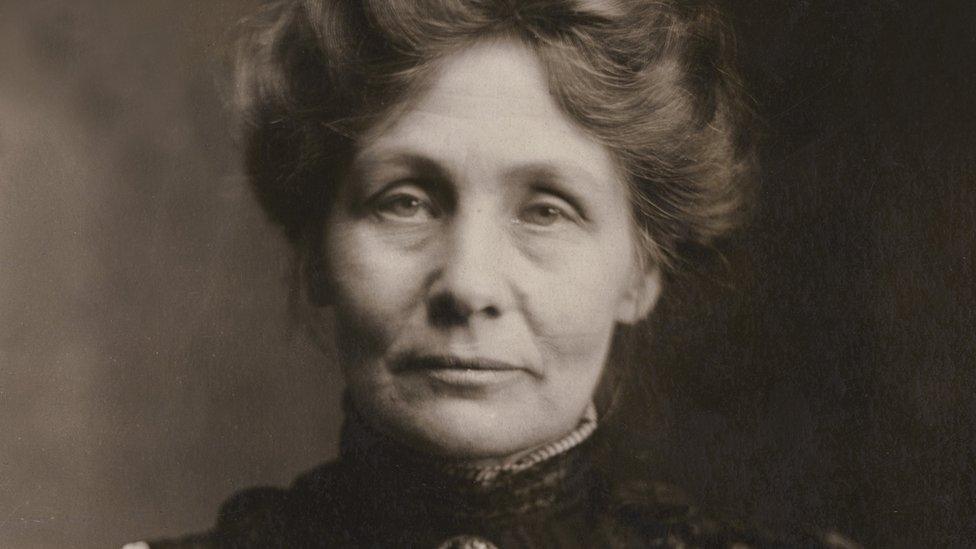Annie Kenney: Statue to mark 'overlooked' suffragette
- Published
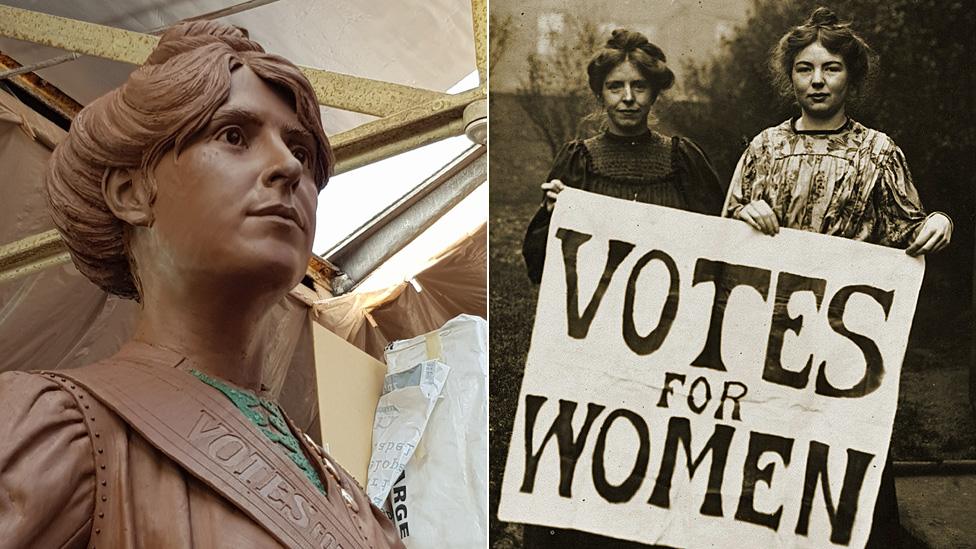
Annie Kenney (left) with Christabel Pankhurst in the famous "Votes for Women" image
A statue design has been unveiled of the "underestimated" suffragette Annie Kenney, who was arrested after asking Winston Churchill about voting rights.
Along with activist Christabel Pankhurst, she was photographed holding a large "Votes for Women" banner in a now-famous image.
Kenney was the only working class woman to hold a senior position in the Women's Social and Political Union.
Oldham MP Jim McMahon said she "stepped up to change the world".
Mr McMahon, who represents the Oldham West and Royton constituency in which Kenney was born, said: "Without her and others, we would not have made progress in reforming our democracy."
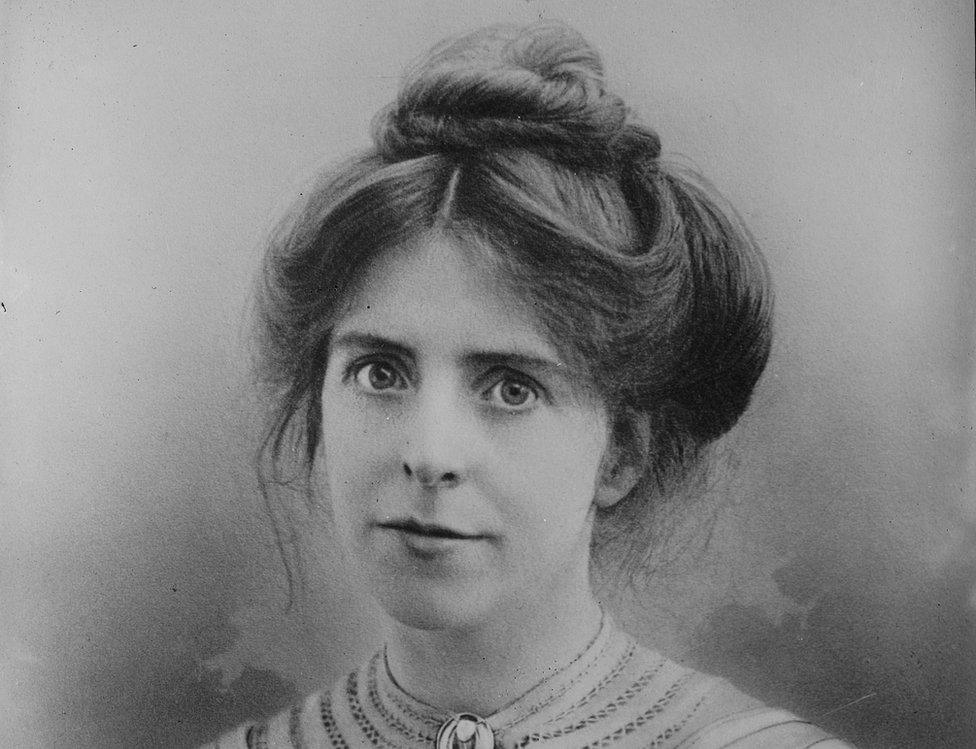
Kenney's role was "underestimated", some say
Designed by sculptor Denise Dutton, the statue depicts Kenney in the Votes for Women sash and ringing a bell.
It will be unveiled on 14 December outside Oldham Town Hall to mark the centenary of the Representation of the People Act 1918, which gave some British women the right to vote.
Born in 1879, Kenney was one of 12 children and worked in a cotton mill from the age of 10.
In 1905, she and Christabel Pankhurst - one of the daughters of suffragette leader Emmeline Pankhurst - interrupted a Manchester rally to ask Winston Churchill, then MP for Oldham, and his Liberal Party colleague Sir Edward Grey if they believed women should have the right to vote.
They were thrown out and jailed, with Pankhurst accused of spitting at a policeman.
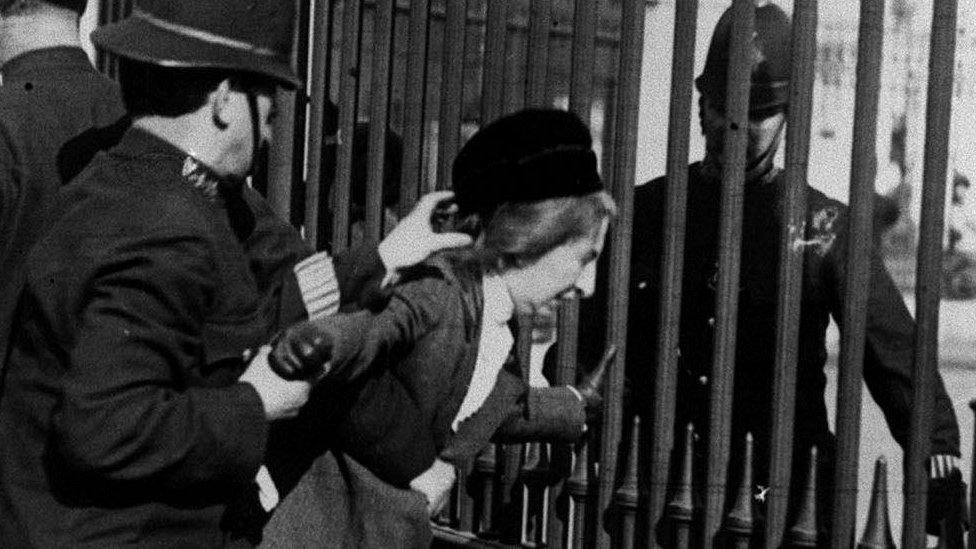
A suffragette is arrested after a protest outside Buckingham Palace in 1914
It was seen as a pivotal moment in the campaign for the vote, when the suffragettes moved towards more radical, direct protest.
Kenney was imprisoned 13 times and took part in hunger strikes.
However some researchers say her role was "often underestimated", compared with that of better-connected families such as the Pankhursts.
Following Kenney's death in 1953, a plaque was erected in her honour at Lees Brook Mill, where she worked as a child.
About £24,000 has been donated for the new statue, but the Annie Kenney Memorial Fund Committee hopes to raise another £6,000 to cover the total cost.
- Published21 September 2018
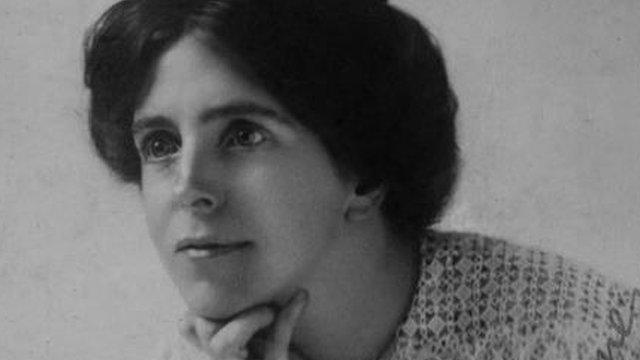
- Published6 February 2018
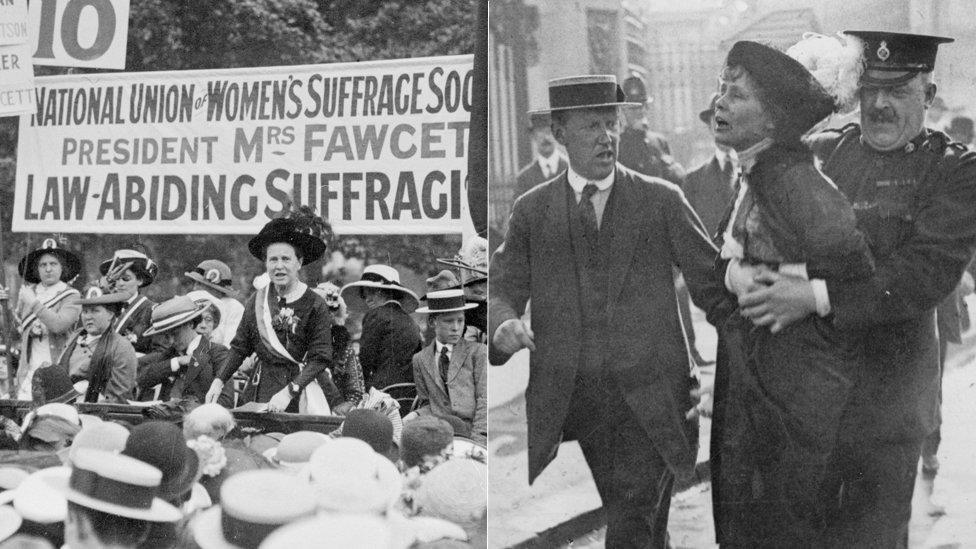
- Published8 June 2018
